How prosthetists are trained in Ukraine according to international standards
[ad_1]
Hundreds of thousands of soldiers and civilians will need prosthetics in the coming years in Ukraine. Due to a full-scale invasion, the number of patients in rehabilitation departments and the queue to the prosthetist will only grow.
In Ukraine, there are several educational institutions where you can get an education in this specialty and “polish” your knowledge in practice. However, prosthetics – like any innovative industry – is constantly developing and introducing new methods and technologies.
Since 2018, the German organization Human Study has been training Ukrainian specialists according to international standards. Due to the Great War, some programs had to be suspended and postponed, as well as to find a new practical base for students.
A new prosthetics workshop for 40 places will open in Lviv in May 2024 on the basis of the Nezlamni rehabilitation center. And at the same time, the upper limb prosthetics course will begin.
“UP.Zhyttia” spoke with Christian Shlirf, the head of the Human Study organization, as well as with program graduates and prosthetists Oleksandr Gerasimenko, Mykhailo Makarov, and Vyacheslav Zemlyan about how they got into the profession, what motivates them to develop, and how training at Human takes place Study.
The future premises of a prosthetic workshop in Lviv
Center “Unbreakable”
How many prosthetists are needed in Ukraine
By data WHO, about 1% of the population needs the services of prosthetists, of which a third are children.
“There are a number of reasons that lead to amputations – these are health problems – vascular diseases, diabetes, and a limb can also be lost in a road accident.
But in the Ukrainian context, it also includes military personnel and civilians who suffered as a result of hostilities”, said the head of Human Study, Christian Schlirf.
Ukraine will need a large number of clinical and non-clinical prosthetists in the next 5-10 years. They manufacture prostheses and orthoses, i.e. corsets, bandages, orthopedic products, etc.
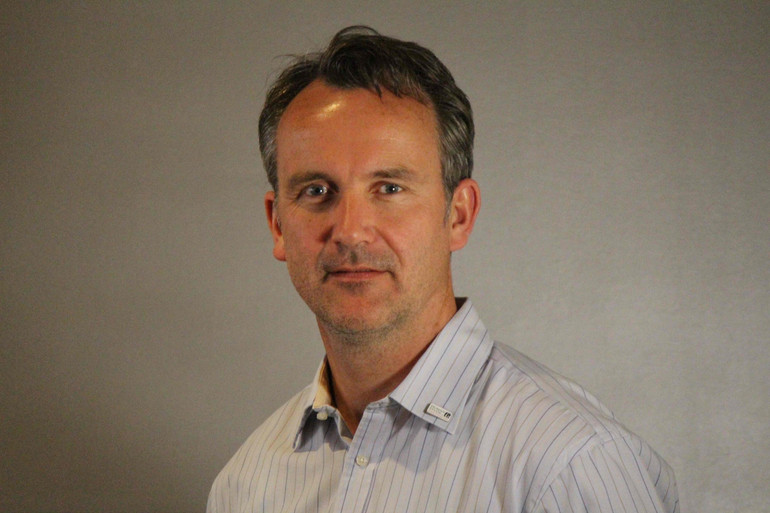
Christian Schlirf
photo from the archive
A technician and a clinical prosthetist have a certain standard of work – it is about 100 products per year (if we are talking purely about limb prostheses). It is about a full cycle from taking measurements to the patient mastering a new limb.
“Currently, no one is trying to count the number of people in Ukraine who will need prostheses, because the hostilities are ongoing.
But the number of highly qualified people should not only cover the need, but also have a certain “reserve” of specialists, because a prosthesis is not a product for life. This device requires technical inspections and parts replacement every 3 years“, said Christian Schlirf.
According to him, the field of prosthetics is very dynamic in development – new technologies, components, approaches, etc. are constantly appearing.
This is also confirmed by a clinical prosthetist Vyacheslav Zemlyanyi. He has been in the profession since the 90s, the specialist has secondary technical and two higher educations.
“I have quite a few military patients. Usually, at our first meetings, they are in a difficult psychological state. But what a joy to see them come back to life! This is also due to the constant updating of knowledge and the application of new approaches.
I could not imagine that a young 22-year-old boy with a prosthesis would have the desire to dance. Or – that a patient with a hip prosthesis will be able to climb a rope. These people set small realistic goals for themselves and achieve them”, says the prosthetist proudly.
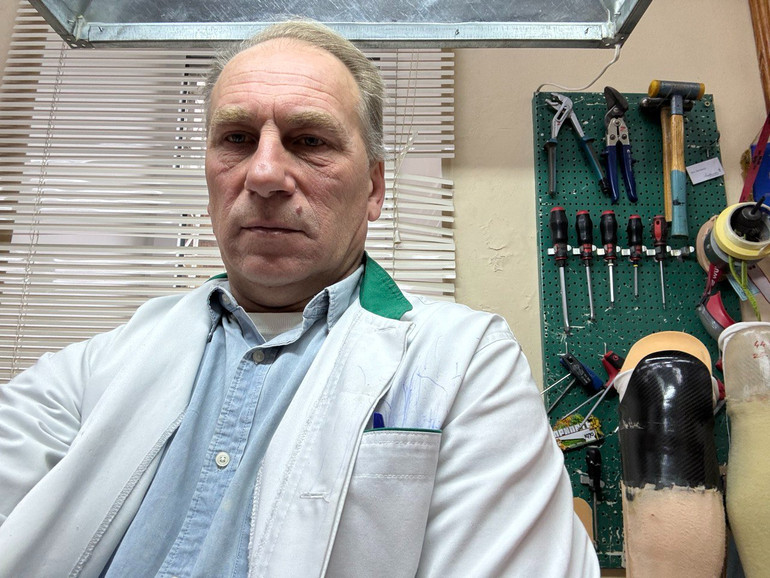
Vyacheslav Zemlyanyi
photo from the archive
How prosthetists are trained according to international standards
In Ukraine, the Human Study organization started working as an educational hub in 2017 on the basis of the Kharkiv National University of Radio Electronics. Therefore, already in February 2018, the first flow of prosthetics students started.
Due to a full-scale invasion in February 2022, the university was moved from Kharkiv to Kyiv for security reasons. But there was no basis for conducting practical classes in the capital – all the equipment of the workshop remained under fire.
Training takes place for prosthetists of three levels – technical workers, clinical prosthetists and scientific workers in the field of prosthetics.
First of all, they are looking for theoretical scientists, who have thorough knowledge of anatomy and biomechanics. They can become teachers of the program.
Like, for example Oleksandr Gerasimenko, who has been working in this field for almost 25 years. He teaches at the Department of Physical Therapy, Occupational Therapy of Ivan Franko State Pedagogical University of Drogobytsk.
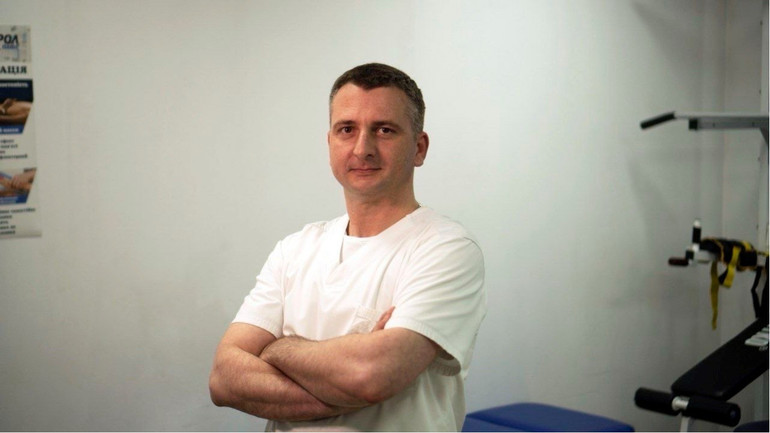
Oleksandr Gerasimenko
photo from the archive
In 2023, Oleksandr became a teacher at Human Study.
“I studied with specialists from different parts of the world. Each country has its own specific economic aspects, which the teachers could not explain because they were not in the Ukrainian context.
I know how the system works in the country, and it is easier for me to explain to students how to use this or that method, what features should be taken into account, etc.“, the specialist noted.
Previously, the program was taught in English, but in a few years the material was adapted to Ukrainian.
“The material is proofread and improved by the joint efforts of students and teachers. Each new course receives more polished content in terms of both translation and presentation of information.
Therefore, each subsequent generation will definitely be a little better than the previous one, because the student must always surpass his teacher.”– noted the prosthetist.
IN clinical prosthetists should be at least 2 years of experience and direct practice with patients. This is necessary so that they can immediately apply the acquired knowledge in their work.
Techniques can apply for this program after receiving secondary special education of a prosthetics technician. An important condition is that he must work in this profession.
So, for example, a prosthetics technician applied for training Mykhailo Makarov. Shortly before the invasion, the man decided to learn a new profession, in the conditions of the war, it turned out to be extremely necessary.
“I used to work in construction – my profile was painting and plasterboard works. So plaster remained in my life, but now in a different form”, Mykhailo joked.
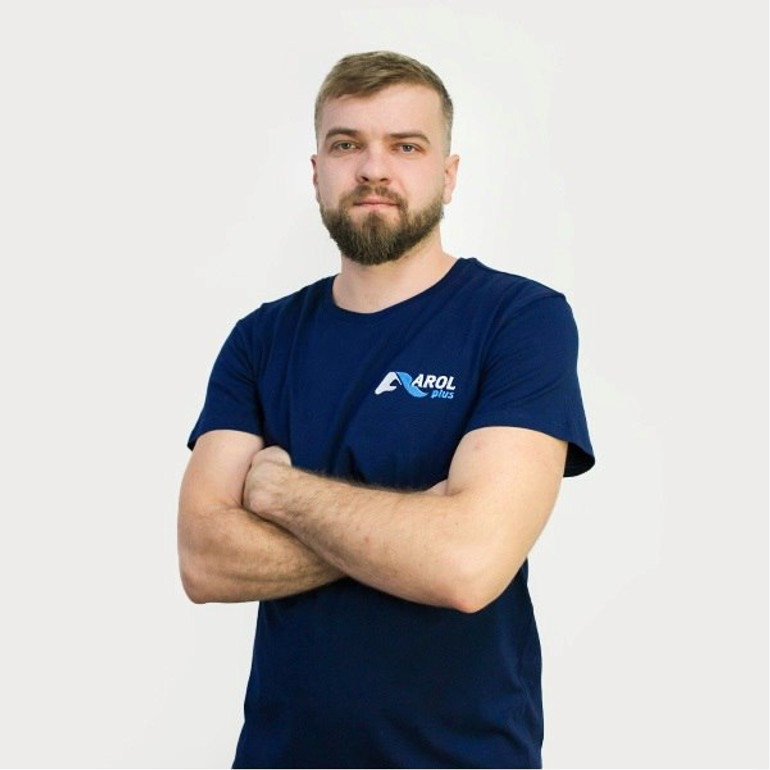
Mykhailo Makarov
photo from the archive
During this time, he not only studied at a Ukrainian educational institution, but also completed several Human Study courses and is looking forward to the next one, which will begin in April 2024.
The technician-prosthetist said that, first of all, he is interested in deepening his knowledge of anatomy, biomechanics, and production technology.
“In Human Study, I studied theory in depth, which also influenced my practice. Two years in this profession is not very much.
Most of all, I like to see how a person gets back on his feet, becomes vertical, so to speak, and takes his first steps. This is such a moral supplement to the salary, when I understand that a person is returning to everyday life”Mykhailo shared.
Course exams take place not only in the usual academic form, but also in a creative one – the specialist must present the product with the participation of the patient.
For example, the technicians show how the measurements were taken, talk about the main technological processes and finish by handing over the prosthesis to the patient. By the way, the patient must also show how he mastered the new limb.
A new basis for practical training
In 2024, the program was resumed in Lviv on the basis of the Nezlamni rehabilitation center. By May 2024, GIZ Ukraine, with the support of the German government, will build a prosthetics workshop with 40 jobs here.
In addition, on the basis of this workshop, practical classes of students of Human Study programs will take place, as well as seminars on prosthetics and medical innovations.
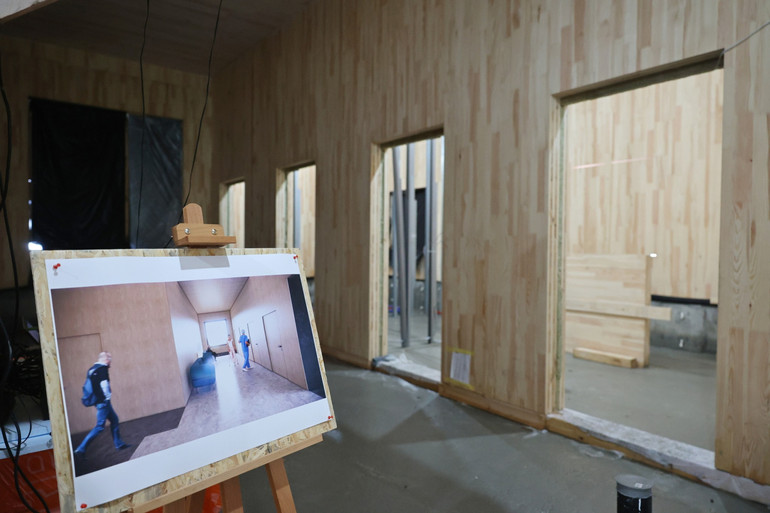
Future prosthetic workshop
Center “Unbreakable”
In the next 1.5 years, there are plans to train about 60 prosthetists and orthotics specialists of various levels – from technicians to teachers of educational programs.
“We also take care of geographical distribution of knowledge and try to reach practitioners who are already working in this field.
I think the project in Lviv will be a pilot project – later we will be able to transfer it to any cities of Ukraine. Now there is a great need for people who can perform technical work and deal with patients”, added the Director of Human Study.
Victoria Andreeva, UP. Life
[ad_2]
Original Source Link











